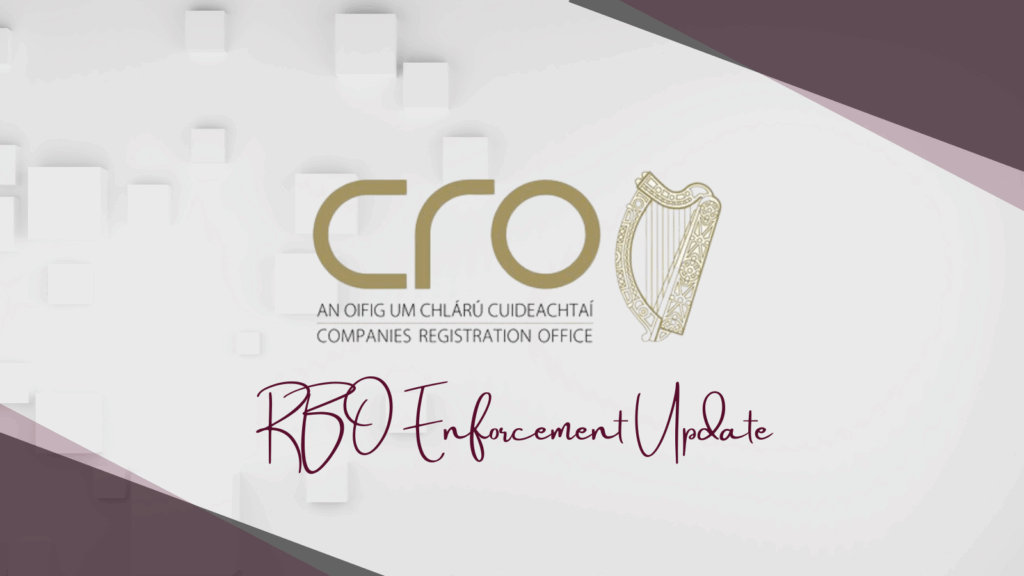
By Andrew Lambe, 5th October 2023 (Updated 13th November 2023)
In pursuit of improved regulatory compliance, the Companies Registration Office (CRO) has undertaken significant efforts of late to enforce regulatory requirements and encourage good corporate governance. In July, the CRO doubled down on these compliance efforts by issuing warning letters to companies that had failed to file annual returns for more than one year. The CRO’s enforcement actions aim to bring these non-compliant companies in line with regulatory requirements, a task that is anticipated to continue until March 2024.
The CRO’s enforcement process is multifaceted. After the initial 10-week warning letters, a wave of strike-off warning letters will be dispatched in early October, representing a critical juncture for companies receiving these communications. Companies that have not filed annual returns for more than 12 months and are late in their submissions will face involuntary strike-off proceedings beginning in early December. These measures underscore the CRO’s unwavering commitment to ensuring timely and accurate filing and reporting within the company landscape.
In addition to the CRO’s efforts, the Central Register of Beneficial Ownership (RBO) is also looking to bolster regulatory compliance. The RBO has issued 111 enforcement letters, leading to 10 non-compliant companies being summoned to court this Autumn. This proactive approach by the RBO highlights the collaborative nature of regulatory bodies in cracking down on non-compliance.
The latest statistics indicate that the compliance rate for incorporated companies is 85.69%, while for Industrial and Provident Societies, it stands at 74.71%. However, with the CRO’s rigorous enforcement measures in motion, there is a tangible expectation of a significant improvement in these figures. The Registrar, a key figure in these initiatives, has affirmed that the ongoing enforcement actions will undoubtedly impact and enhance compliance rates across the board.
As the CRO and RBO continue their enforcement drive, in addition to the increased activity being carried out by the Corporate Enforcement Authority (CEA), it is clear that limited companies and corporate entities are facing heightened compliance requirements and scrutiny. This increased attention underscores the need for companies to adhere to regulatory deadlines and fulfil their obligations swiftly and transparently. The coming months will likely see a more compliant corporate landscape, where accountability and adherence to regulations are paramount.